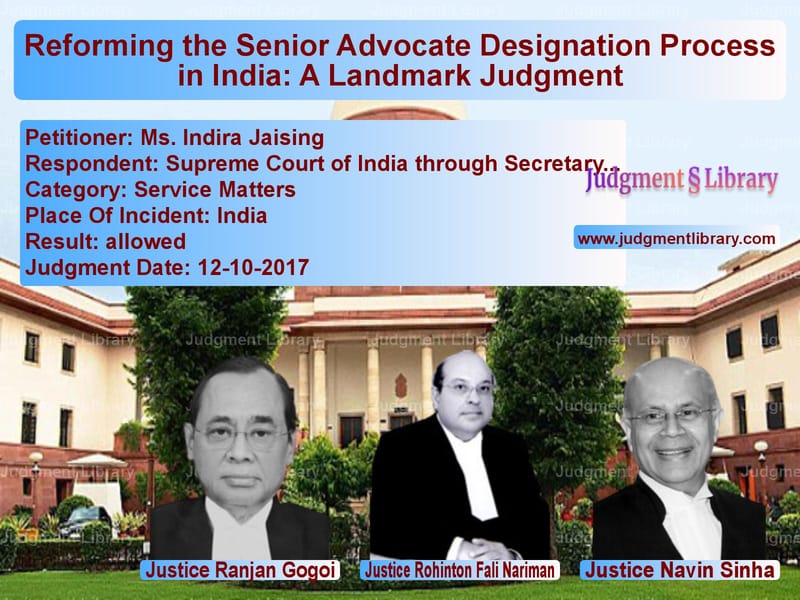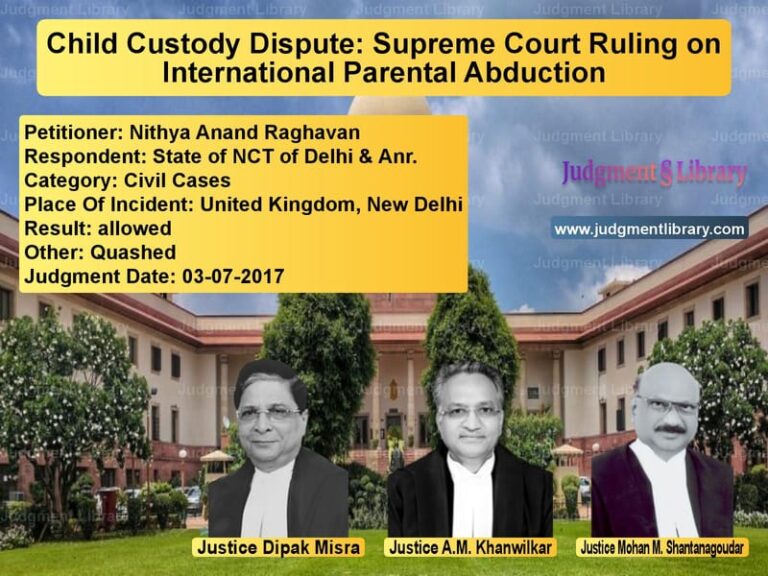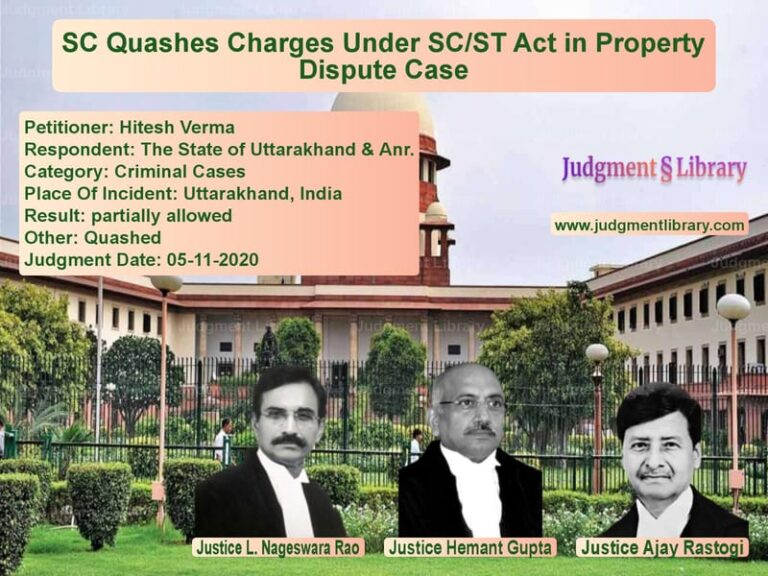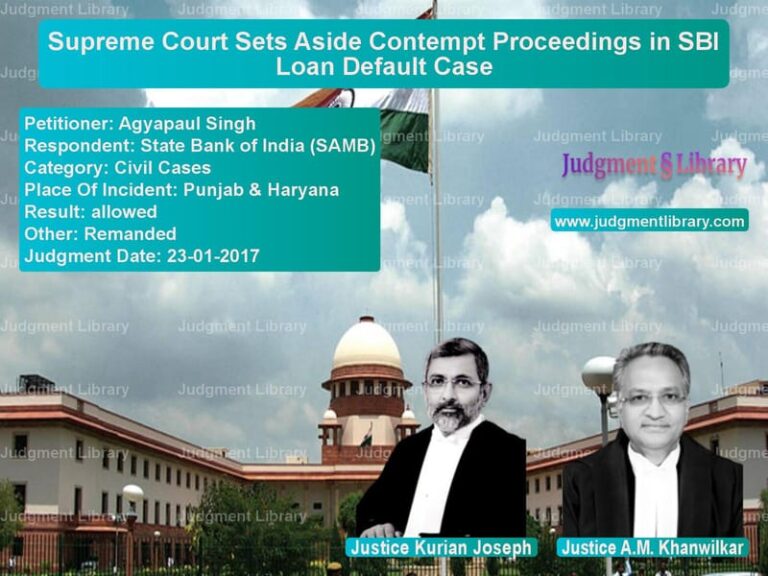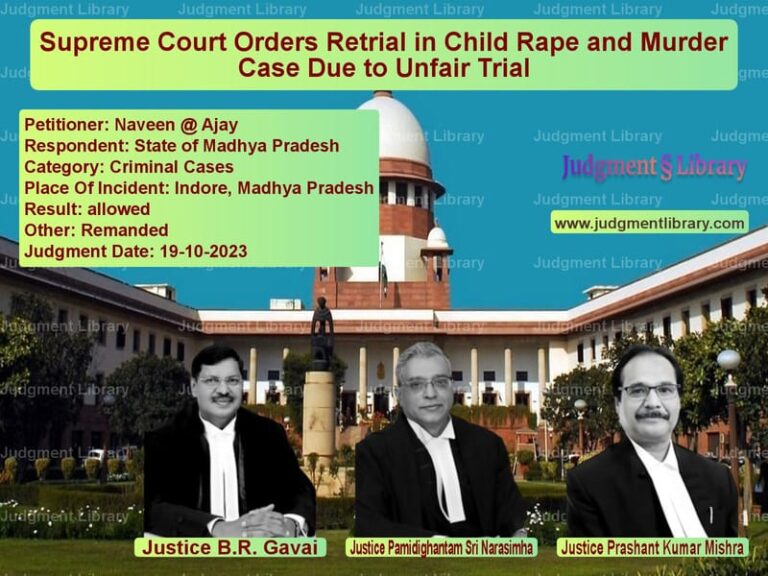Reforming the Senior Advocate Designation Process in India: A Landmark Judgment
The designation of Senior Advocates in India has long been a topic of discussion within the legal community. The recent judgment in Indira Jaising vs. Supreme Court of India (Writ Petition (C) No. 454 of 2015) addresses the need for a transparent and merit-based system for granting this prestigious title. The Supreme Court, in a significant ruling, laid down comprehensive guidelines to ensure a fair and uniform process across all High Courts and the Supreme Court itself.
The petitioner, Ms. Indira Jaising, a Senior Advocate designated by the High Court of Bombay in 1986, raised concerns about the existing system of designation. She argued that the current method of voting by the Full Court was arbitrary and lacked clear criteria, leading to potential favoritism and inequality within the legal profession. The petition sought the establishment of an independent Selection Committee with defined parameters for assessment.
Key Issues Raised in the Petition
- The arbitrary nature of the voting system used for designating Senior Advocates.
- The lack of a standardized assessment framework across different High Courts.
- The need for inclusion of diverse legal practitioners, including those specializing in public interest litigation.
- The necessity of an independent body to oversee the process.
Observations and Arguments by the Court
The Supreme Court acknowledged the concerns raised by the petitioner and emphasized the importance of an objective, transparent, and merit-based system for designation. The Court noted:
“Recognition of qualities of merit and ability demonstrated by in-depth knowledge of intricate questions of law; fairness in court proceedings consistent with the duties of a counsel as an officer of the Court and contributions in assisting the Court to charter the right course of action in any given case, all of which would go to determine the standing of the Advocate at the bar.”
The Court further observed that the existing process lacked uniformity and allowed different High Courts to follow varying criteria, leading to inconsistencies. To address these concerns, the Court proposed a structured framework to guide future designations.
New Framework for Senior Advocate Designation
The Supreme Court established a permanent Committee for Designation of Senior Advocates to oversee the process at the Supreme Court and all High Courts. The key features of the new framework are:
1. Establishment of a Permanent Committee
- Headed by the Chief Justice of India or the respective High Court Chief Justice.
- Includes two senior-most judges and the Attorney General (for the Supreme Court) or Advocate General (for High Courts).
- An additional member from the Bar nominated by the committee.
2. Transparent Assessment Criteria
Applicants will be evaluated based on a point-based system:
- Years of practice – 20 points (10 for 10-20 years of practice, 20 for practice beyond 20 years).
- Judgments, domain expertise, and pro bono work – 40 points.
- Publications – 15 points.
- Personality and suitability (assessed through an interview) – 25 points.
3. Public Consultation
The names of candidates will be published on the court’s website to invite feedback from stakeholders before a final decision.
4. Full Court Voting
- All names approved by the Permanent Committee will be presented before the Full Court for final approval.
- Secret ballot voting will be avoided unless necessary.
5. Review Mechanism
- Applicants who are not designated can reapply after two years.
- A process for revoking the designation if a Senior Advocate is found unworthy.
Implications of the Judgment
This landmark ruling introduces a structured and transparent process for the designation of Senior Advocates. It ensures:
- Merit-based Selection: Advocates will be assessed on objective parameters rather than subjective preferences.
- Inclusivity: Legal practitioners from diverse backgrounds, including those engaged in public interest litigation, will have a fair chance.
- Uniformity: High Courts across India will follow a standardized process, reducing inconsistencies.
- Transparency: The publication of candidate names and a structured evaluation method will enhance credibility.
The new guidelines mark a significant step towards ensuring that only the most deserving advocates receive the honor of being designated as Senior Advocates. By addressing concerns of arbitrariness and lack of transparency, the Supreme Court has reinforced the integrity of the legal profession.
Don’t miss out on the full details! Download the complete judgment in PDF format below and gain valuable insights instantly!
Download Judgment: Ms. Indira Jaising vs Supreme Court of Ind Supreme Court of India Judgment Dated 12-10-2017.pdf
Direct Downlaod Judgment: Direct downlaod this Judgment
See all petitions in Employment Disputes
See all petitions in Public Sector Employees
See all petitions in Recruitment Policies
See all petitions in Judgment by Ranjan Gogoi
See all petitions in Judgment by Rohinton Fali Nariman
See all petitions in Judgment by Navin Sinha
See all petitions in allowed
See all petitions in supreme court of India judgments October 2017
See all petitions in 2017 judgments
See all posts in Service Matters Category
See all allowed petitions in Service Matters Category
See all Dismissed petitions in Service Matters Category
See all partially allowed petitions in Service Matters Category

